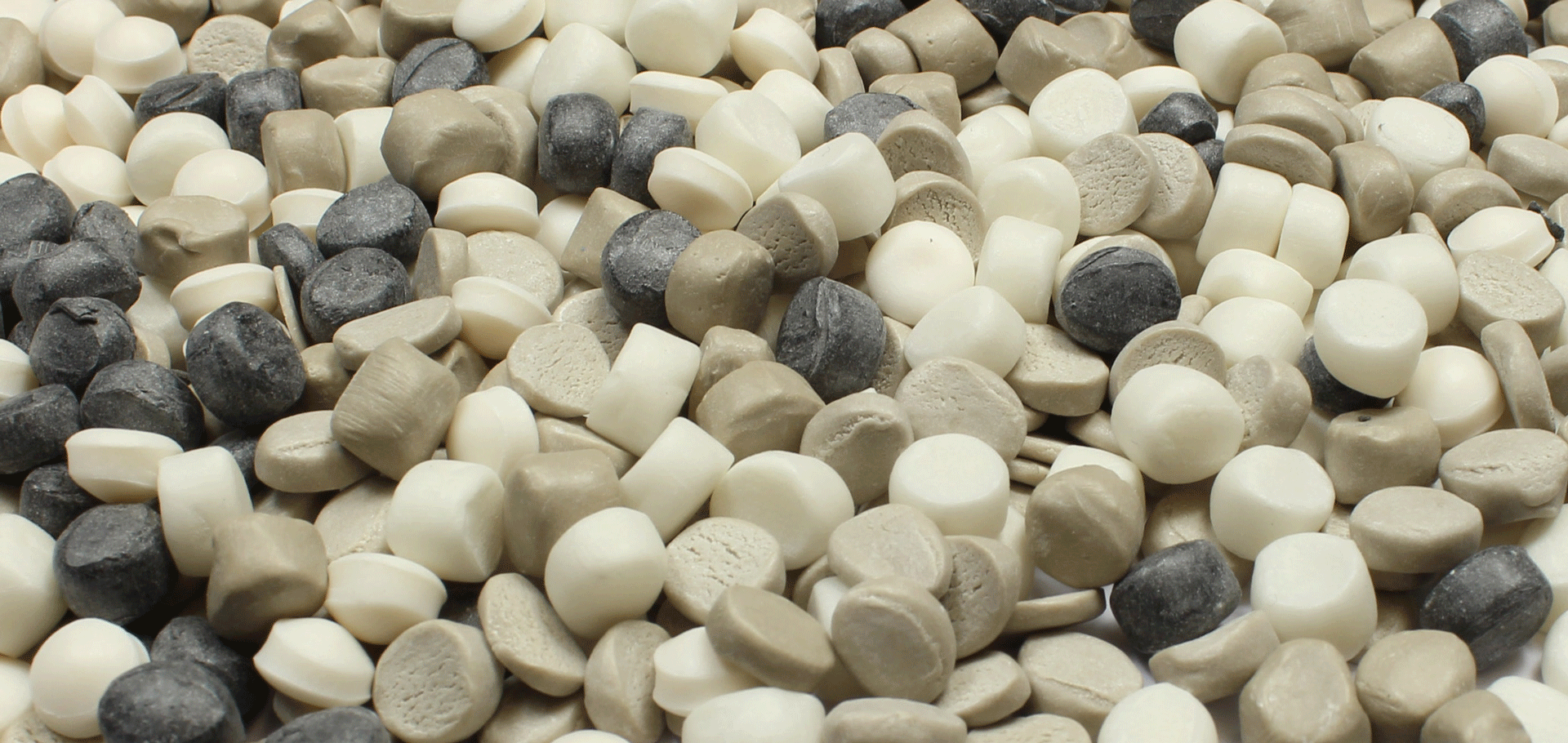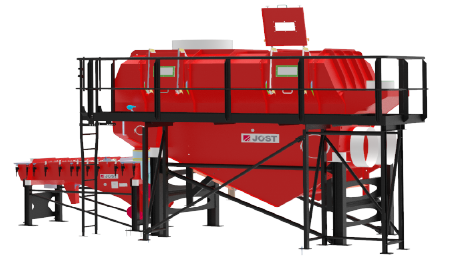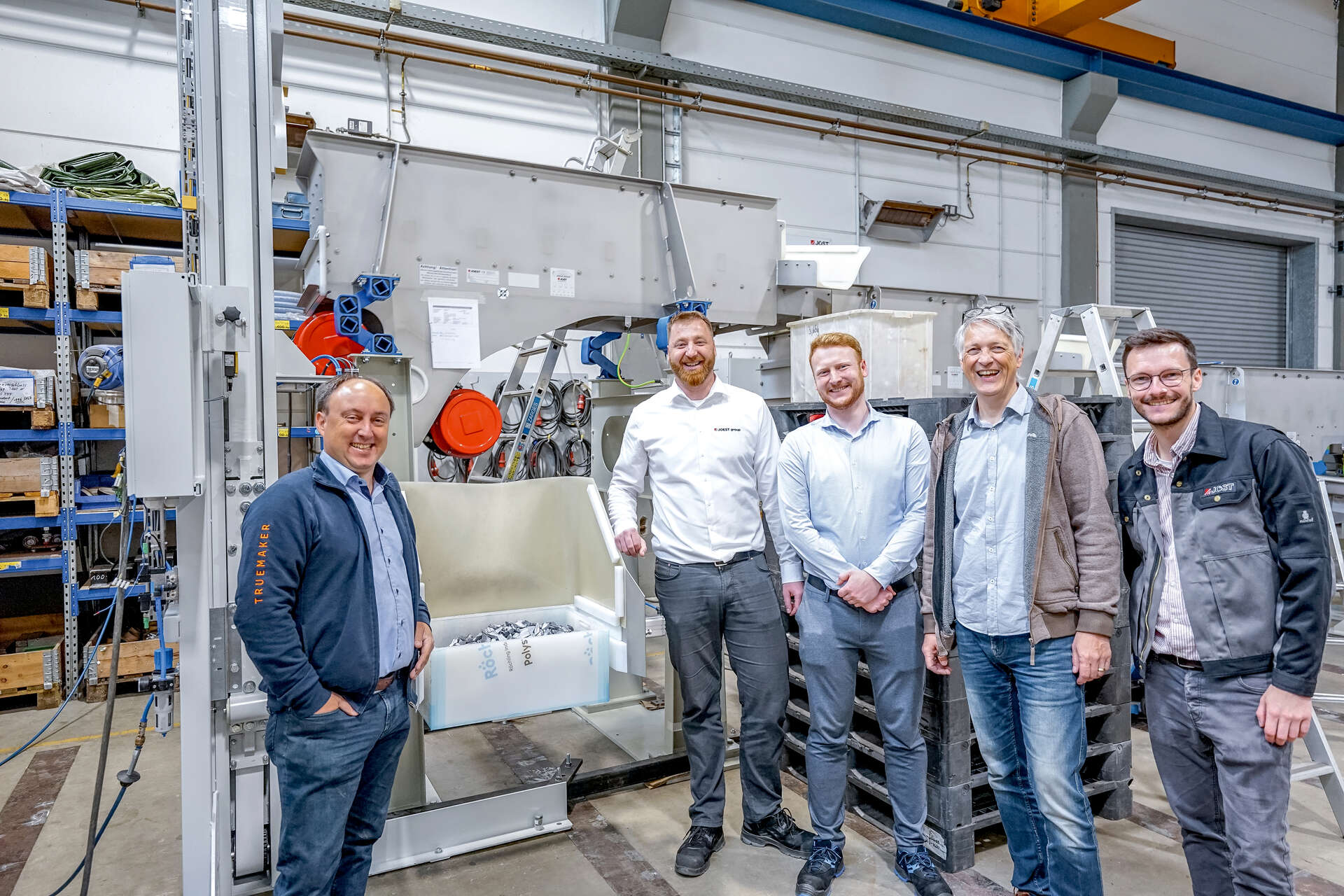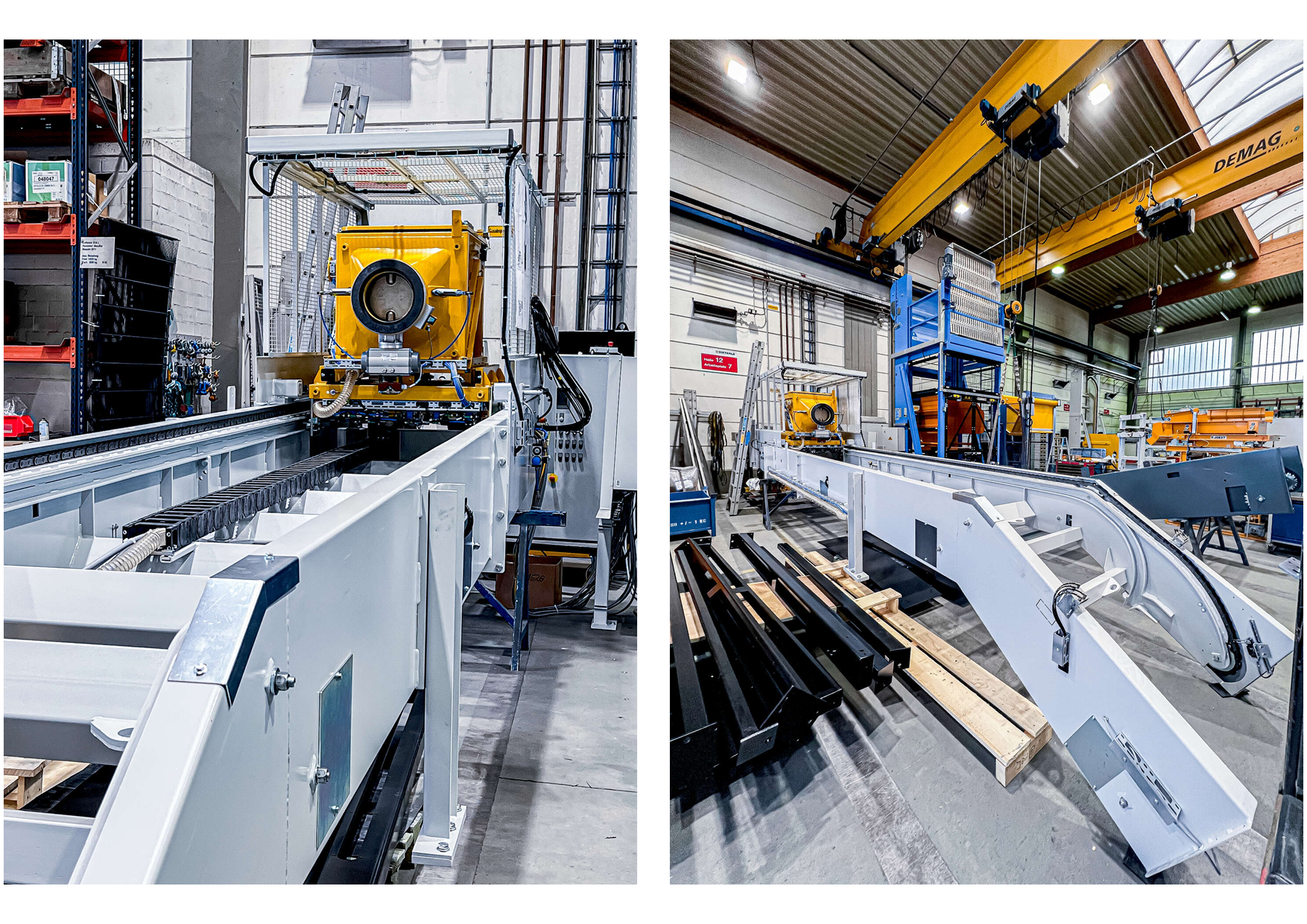CHEMICAL & PHARMA INDUSTRY
Large plant for cooling and screening of EPDM-granulates
“Our Cable Compounds and Customer Solutions are processed worldwide in a wide variety of cable applications, for example in houses, cars, trains, aircraft and household appliances. Consistency in product properties is the key factor here. Product properties is crucial. Cooling our compounds after extrusion is a fundamental process step to ensure this quality. Process step to ensure this quality. We have placed our trust in JOEST for this in the third generation. The project work and handling was excellent.”
Markus Dieckmann,
Projektingenieur von Melos


Third order in a row for JOEST.
![]()
Last year, JOEST got the order for the third cooling line of the Melos GmbH in Osnabrueck, a manufacturerof EPDM-granulates and cable compounds. The first order of this sequel was placed back in 2016.
Melos is a leading manufacturer of plastics for sport- and playground surfaces. They use their know-how to develop custom solutions for various plastic applications including the cable industry and many more. The core of the plant is a JOEST Fluidized Bed Dryer, a Markus Dieckmann, Project Engineer, Melos GmbH GERMANY. Third order in a row for JOEST. Large plant for cooling and screening of EPDM-granulates processing and exhaust air system including pipelines, and a JOEST Feeder. For the demanded cooling of EPDMand EVA-granulates as well as PE-compounds, JOEST designed and manufactured a Fluidized Bed Dryer that is tailored to the application. The feeder has an airflow surface of 6,3 m2 and is based on a vibrating feeder with a conical air distribution chamber. The system also includes a machinemounted hood and a support frame with a single sided walkway. The requi red processing air system incorporates a suction-filter/silencer combination and a processing air fan. An automatic cleaning control is integrated into the air filter of the exhaust system. Due to spacial constraints on site, the process- and exhaust air system was placed away from the Fluidized Bed Dryer and connected by pipelines.
The pipeline layout that even runs through existing production plants was designed by JOEST using a 3D-Scan. The Vibrating Fluidized Bed Dryer is followed by a JOEST Screen which screens the granulates. The upper deck separates agglomerates at roughly 10 mm, depending on the product. The screen deck is designed as a screening trough which is easy to swap. In the lower deck, fine particles are screened at roughly 2 mm. The screening deck here is designed as a suspended perforated plate. The machine’s hood is made up of multiple segments, some of which are plexiglass.
One segment can be opened to take samples of the material. As with the first two projects, we worked in close cooperation with the client and both sides were fully satisfied with the course and outcome of the project. JOEST is looking forward to new and exciting projects in the field of thermal processing technology.

Weitere Beiträge
As part of the JOEST group, MOGENSEN has been a trusted provider of high-performance screening and sorting technologies for many years. The new website now showcases this expertise more clearly and with a modern touch.
On International Women’s Day, we celebrated the great women in our company who have made a significant contribution every day with their commitment, expertise and passion. Their efforts have been a driving force behind our success and an inspiration to us all.
JOEST South Africa was commissioned to manufacture and supply replacement vibrating feeders for a critical power generation facility. The new units are designed to replace equipment that had been in operation for over 20 years, ensuring the continued reliability and efficiency of the plant.
MOGENSEN joins China’s food security project as an official supplier, supporting the nation’s plans to strengthen domestic grain production capabilities. The appointment by COFCO, China’s largest state-owned agricultural company, includes the deployment of multiple precision screening systems for processing rice, wheat and soybeans, among other grains. This long-term initiative is in line with China’s new food security law, which went into effect on June 1, 2024.







